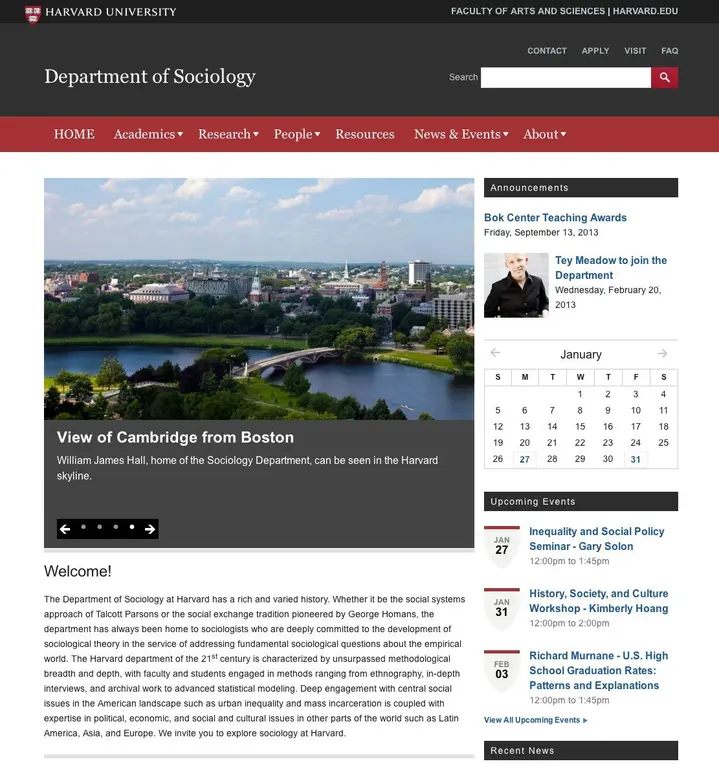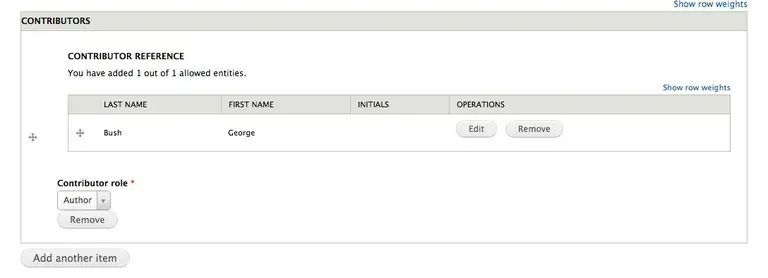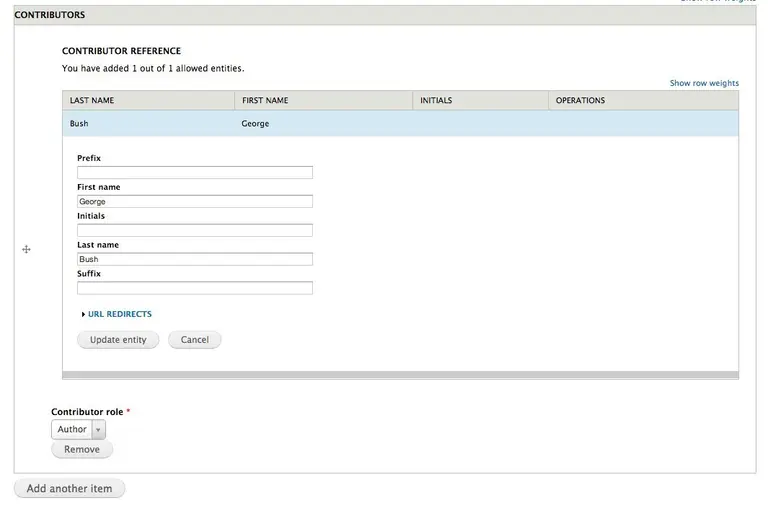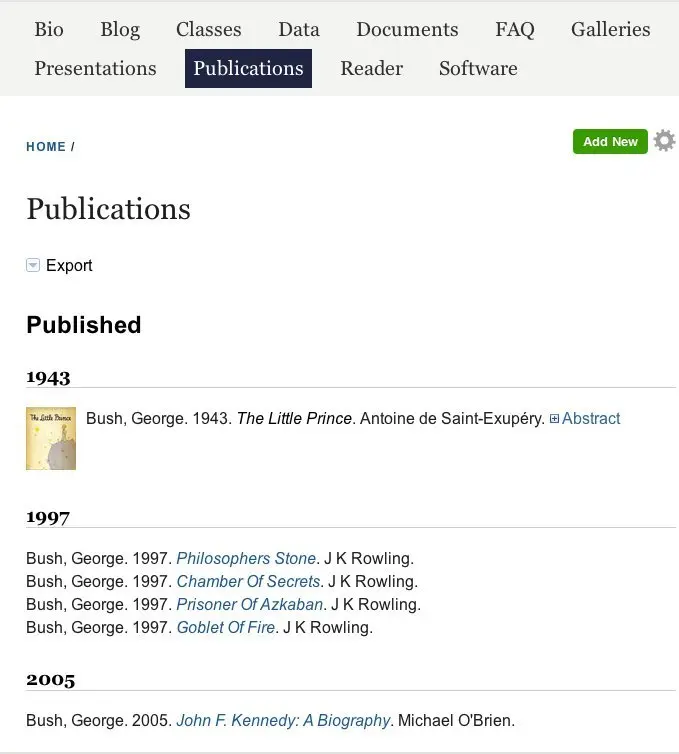OpenScholar and the new Biblio
OpenScholar is the de facto go to solution for academic sites. Over the past year we saw it being adopted in many Harvard departments and higher ed institutions worldwide.

I’m proud that our work is not just based on open source, but also contributes to it - big time. Case in point, the Biblio module which is responsible for bibliographies and citations since back in Drupal 4.6, and has provided a great solution. It was becoming clear the 4.6 architecture is showing its age, and could use an overhaul.
We approached the task with the entire knowledge and tools we’ve used to rewrite Organic groups, and create the Message stack. In short:
- Leveraging Drupal’s existing tools and modules
- “Thinking” API and following TDD (test driven development). Only after getting the API right did we add a UI module to consume the API
- Using plugins for extensibility, so each bibliographic style can be easily extended
If you are familiar with the older versions of Biblio, you will appreciate the simplicity of the API:
Importing new data
<?php
// The data you wish to import.
// In this example, a book.
$data = '
@Book{
washington+franklin,
author = "George {Washington} and Benjamin {Franklin}",
title = "Book About the USA",
publisher = "ABC",
year = 1980,
address = "Los Angeles",
edition = "ninth ABC printing, tenth DEF printing"
}';
// Get the relevant biblio style class to handle the information.
$biblio_style = biblio_get_class_from_style('bibtex')
// Import the Biblios.
$biblios = $biblio_style->import($data);
Showing the imported data using CiteProc is as simple as $biblio->getText('citeproc');
On the UI level we are leveraging inline entity form, so adding contributors is done in a very concise way and removes the previous guesswork that Biblio did for converting a string (the contributor’s name) into structured data (the Biblio Contributor entity).


Extending it and integrating it into OpenScholar requires some work - but the new API makes for a much smoother experience.

Amitai Burstein
@amitaibu